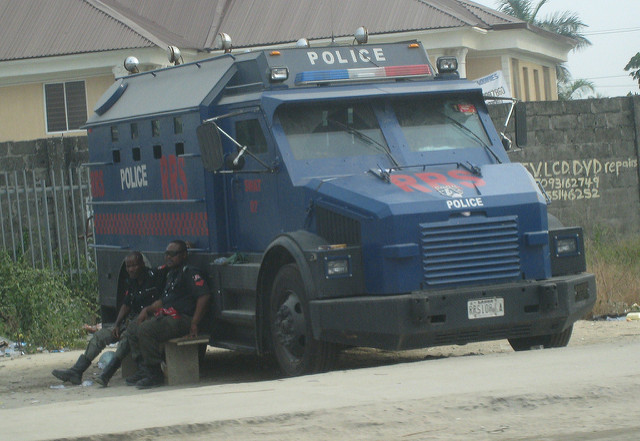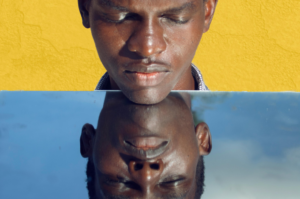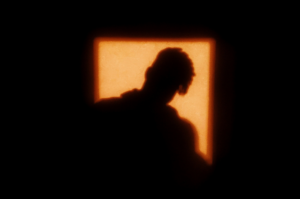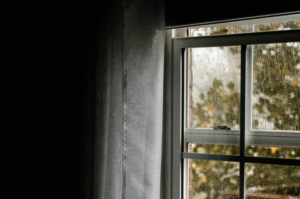
Content Warning: This story contains depictions of physical and sexual violence.
It was typical of Thursdays to be lazy and boring for me unless mum was off at work, then we would stay at home together and do all the gossips. She had left for work that morning almost before I could see her. I just could not stop wondering how a woman of her age could cope with so much stress. She just marked her sixtieth anniversary weeks ago and was set to retire in three months. That morning, I only heard her voice, “Bona I’m off to work. You take care.” Then the door closed gently with a dull thud and I returned to exhaust the lingering sleep in my eyes.
I finally woke two hours later into the arms of a very bright day; the sun, smiling down on the earth. I yawned and stretched myself, reluctant to get out of bed but the heap of work and laundry motivated me to get up. I mustered up courage and left the seducing mattress to itself, into the day’s hustle. Waiting for noon to prepare for my afternoon shift at work always seems like an eternity. Mum had prepared a special meal the previous evening and I only wanted to eat when I was through with the chores and all.
The morning was still fresh and the street was busy as usual with people rushing to meet up with the striding time. Cars racing up and down the road, distinct noise and hustles heated up the streets into a typical morning in Nigeria. On my way to Caro Plaza to buy some detergent but a voice intercepted my journey, calling with so much energy, and I turned into my friend—Degema. He waved at me to stop as he hopped through the busy road to meet me.
“How far?” he stretched his hands and we shook.
“I’m fine,” I replied. I noticed a tint of fright in his eyes. Any problem?”
“That thing we talked about two days ago,” he replied, looking around like his sins were lurking somewhere to catch up with him.
“Which thing?” We always had something to talk about, so I asked about the particular thing he meant.
Degema whispered into my ears, “War.”
“War?” My ears tinged like a frightened antelope. “Are you sure?”
“Let’s go, let’s go.” Degema pushed me and we resumed a walk of terror with wobbling feet and troubled hearts.
We went together to confirm the news at the vendor stand. We were sure to find people arguing and sharing their views and talking extensively on the matter if it was true. We walked into a cluster of people like swam of protesting bees, more than the usual crowd; and everyone there said the word “War” four million times. I listened to their various contributions on the matter—
“War helicopters hovered around our house yesterday…”
“Soldiers infested our streets yesterday…”
“Dad and mum said we’ll travel out of the country soon…”
“My uncle abroad has asked all of us to come over…”
“My parents are selling off all our properties…”
Everyone talked about this and that, and there I stood, frozen, glued on my feet to the ground.
“How come everyone is preparing to run and mum is doing nothing?” I asked myself. “Or is she unaware of all this pandemonium?”
My boring Thursday had a premise—it went all bad. I soon realized I had burnt an hour listening to reports of looming war and had to find my way back home.
***
I almost turned the hands of the clock to nine on the dot to listen to the news—maybe what I heard at the vendor stand were just rumours cooked by lazy mongers. I could not do the laundry anymore. Fear had crippled my strength and morale, and I looked like the hopeless widow of Seraphite with the pot of her last meal.
Right on time, I sat patiently through the radio commercials until that voice came up, “Good morning and welcome to News at Nine. I am Stephanie Udosen. First the headlines…
“Federal Government calls for a pause on all awarded contracts…
“House of Rep okays the release of three billion naira to the Ministry of Defence…
“ECOWAS to meet with Nigerian Government in an urgent meeting…”
“United Nations advises Nigeria to avert war…”
“Neighbouring countries raise alarm over the exodus of Nigerian citizens…”
“Federal Government urges citizens to disregard every rumour of war…”
“War?” Goosebumps grew on my skin like monkeypox and my heart began to jerk. I knew they said rumours of war were all true—our Government has never told us the truth. I just prayed that mum didn’t listen to the news wherever she was because it was the only thing that could turn her life around. She was yet to recover from the shock of the first civil war which had ended many years ago.
I turned off the radio at once. If the headline could cause such havoc, the detail could wrest my breath away. It was getting more serious than I could ever imagine. Degema and I had talked about what to do if war eventually started. The same rumour of war had pervaded everywhere six months ago until the peace talk and resolution quelled it. But this time, it seemed like it was closer than a lover’s breath.
Degema and I had watched Hollywood war movies to get some knowledge and skills on how to pull a trigger and fire the AK-47. We had bought toy guns and did some shooting practices and stunts, modeling Arnold Schwarzenegger, James Bond, Denzel Washington, Samuel L. Jackson, and the likes. And also did some karate practices, modeling after Jackie Chan and Jet Li. We were ready for war then, but now, the weight of the news was nothing to contend with. No one told us that it wasn’t a child’s play; same Degema was on sharpened heels. I got soaked in my fears until it was time to leave for my summer work. I couldn’t even have a taste of food anymore.
***
I returned from work later that night into a rowdy neighbourhood stirred by panic. A lot of unusual things happened. The height of it all was when I found Rossana’s stall closed at 8 pm. “What! Rossana of all people? The only woman in the neighbourhood whose stall was always open even after the earth has dozed off? This must be serious.” I pinched myself.
I knew the worst must have happened. Even the street was almost empty except for the stubborn ones acting like spies. As I got home, I found Mum roaming the entire compound waiting for me.
“Oh Bona,” she rushed up to me. “Are you okay?” Her hands ran all over my body like Ada’s clueless romance.
“What is it?” I splayed my hands in confusion.
“Just come in,” she said. She dragged me along into the house and slammed the door so hard that I startled.
“Mama, what is it?” curiosity amplified my voice and she shushed me up.
“Shhh… lower your voice,” she motioned with her hand.
We sat in the dark room and she insisted that the lights must be off the way she turned them. By this time, my heartbeat had assumed the tempo of a school marching song.
“Soldiers are everywhere,” she whispered. “With long guns…” She opened her hands wide apart to show her exaggerated size. Obviously, no gun would have as long as what she demonstrated.
I was yet to absorb the shock when she dropped another one, “Helicopters and warplanes everywhere…”
“That’s serious,” I said. My eyeballs almost popped out of their sockets. Mama was one impatient person—she dropped another one, “Ette Kenneth aya travel ye afid ufok amo mkpong (Papa Ken will travel with his entire family tomorrow).”
“War has come,” I mumbled. My blood pressure surged with the speed of light.
“Mama, war has come,” I said. “I heard it this morning at the vendor stand but the government has asked everyone to be still…”
“Leave the stupid government!” Mama said. She opened an angry stare at like me like I was the government. “That was the same thing they told us when the agitation started in 1965 until finally in 1967 when the civil war broke out. That was the same thing they sang on radio and television even when bombs were falling like raindrops. That was the same thing they said from overseas where they had traveled out with their families to enjoy peace, leaving us all defenceless. That was the same thing they said when I watched Umoh bound helplessly and those brutes who called themselves soldiers slit his neck open…” Mama ended in a cry.
I pulled her softly and she followed into my arms, and wet my cotton shirt with tears.
“It’s okay Mama, God won’t let it happen this time,” I said. I knew that Mama’s faith was the only thing she clung on to in times of fear and despair like this. But the faith thing failed this time.
“Bona, I don’t want to see war again,” she said. She gave me a firm grip like she was clinging on to life to escape the pull of death. I didn’t know what else to say to console Mama since the faith thing could not calm her. However, I persisted in my sorry song until she finally regained herself, and we disentangled from the hug to go make dinner.
***
I had trouble sleeping that night. The thought of how to survive, running with mum kept me ruminating and turning over on my mattress. Of course, I wouldn’t want to leave her behind no matter the situation. Ever since my elder brother, Patrick, left home six years ago, I became the only family she knew, though she had told me she had a family which she lost during the civil war in 1967, she never wanted to tell anyone about it.
“Would I hide her in a hole or something?” I asked myself.
Just then, the sound of helicopters threw me on my feet and I flounced out of bed, through the door only to meet mum outside, watching the helicopters—obviously, they were warming up for war.
“Mama,” I called. I tapped her on the shoulder and she turned. Her eyes were bleeding tears.
“What is it?” I asked. She replied with a shake of the head but I knew that all was not well. I have never experienced a communal war but mum’s tremor filled my heart with so much fear and hatred for war such that I would have done anything within my power to avert war.
“I have told you. There’ll be no war,” I said. I sat beside her and wrapped her in a hug.
“But the signs are obvious,” she said. Her voice was shaky; and when she pointed to the flying helicopters, her hands palsied.
Fear would have broken my soul that night. I have never seen mum so scared of anything, even death. The same mum who couldn’t wait to go to heaven was now trembling like a toddler on a walk test? Then, war must be a bad thing!
“I’m not afraid to die,” Mum said. “But I don’t want to see war again.”
“There’ll be no war Mum.” I would have told myself that I was sounding like a broken record.
“You don’t understand Bona,” she said. “I have seen these signs before.”
“Then, Patrick will come and take us away before the war happens,” I said.
Mum laughed and replied, “Patrick may never come back.”
“What!”
“Yes,” Mum replied. Her face showed all the seriousness in her life. “I told him what he persuaded me to tell him and he left home.
“What did you tell him?”
“I told him about war,” Mum replied.
I was lost for a brief moment. “You told him about war and he left home?”
“Yes, Bona,” Mum replied.
“Tell me Mum, I want to know,” I said. I have been persuading mum to tell me about war but she always refused. I wasn’t expecting her to tell me either, but she let it all out, and it hit me hard in the wrong place. She narrated…
***
“It was just a week after Umoh and I got married, and suddenly, there was this same motion for war moved by some individuals who just returned from overseas to seek for a right they claim was theirs. I was eighteen; a young school leaver and the best English language student from a school in Benin City, where I lived with my maternal uncle and had won a scholarship to do a Master’s programme at Cambridge University. But I insisted that Umoh and I must wed, and we did. We were still battling for a visa to travel abroad together when the agitation was over. It was three weeks to our day of travel when suddenly helicopters started warming the sky like they are doing now. There was so much panic everywhere. People were running away from the country but our parents could not afford travel fare for our family. The government remained on their words that everything would be sorted and we believed them, obviously we had no choice since we couldn’t afford travel fare.
“It was on a Thursday morning, I had just finished preparing yam and egg sauce, and was waiting for his return from his family house so we could eat when I heard the first bomb blast and the ground quaked. Our glasses danced from the cupboard to the floor in shards, and our wedding photograph on the muddy wall tangled. Then, I heard footsteps running everywhere and people screaming, “War! War!! War!!!”
“Fear threw me out of the house almost into the sporadic firing from a war helicopter. I delved into our little livestock hut at once, landing my belly and face in the dung and the goats broke out into the compound.
“Umoh! Umoh!!” that was all I could scream as I covered my head with my hands, kicking my legs against the green reserved for our goats. As soon as the wave of helicopter passed and people began to cry. I rushed out into corpses littered everywhere, and people carrying the lifeless bodies of their loved ones. Our next door neighbour slumped at the sight of his three children lying motionless.
“I tore myself into the streets in search of Umoh, oblivious that my wrapper had fallen off and I was almost unclad. He was all I needed to stay calm. We had been childhood friends and good neighbours until we grew to become lovers. It took all the strength in us to break through the barriers of both families to get married. Umoh was accused of being a playboy, but I loved him somehow. His intelligence, talkativeness, witty and sanguine temperament swept me off my feet. We had promised ourselves the best of life and we were certain that nothing could ever separate us.
“Umoh and I ran into ourselves on the road, hugged and kissed like we were going to do it right there on the road. The happiness that both of us survived the rain of bullets got us both intoxicated and happy, but we managed to get home before we shredded each other’s clothes and quickly launched into a thanksgiving love-making. But it wasn’t up to three weeks before things finally fell apart. War had come to stay. By then, our houses were brought down to ashes and smoke and we made tents in the bush, running from one bullet firing to another; people dropping dead from bomb blasts and stray bullets like falling mango fruits, but Umoh and I managed to survive. The church building was brought down by fire, and even Reverend Brown—the missionary from England—had absconded, leaving his beautiful wife and three kids.
“Three weeks later, Umoh and I were captured by five soldiers in the bush. They had wanted to shoot us away but I begged them with tears in my eyes to pity us—that we were a young couple who were yet to enjoy our union. Then, we were at Bakassi in Cross River State, close to the Cameroon border where we could escape. I can recall one of those soldiers whispering to others and they all opened a funny look at me. I could sense that the inspiration of mischief had come on them. Their leader motioned the rest to get me while he unbuttoned his trousers.
“Please, don’t do this,” I said. Tears poured from my face like an overflowing gutter.
“Umoh stood out to challenge and one knock from the gun sent him to coma. He woke up minutes later when the second soldier was having his turn on me. They had rent my clothes into pieces of rags and I lay supine, shamed and angered. Umoh was bound hand and feet and forced to watch the cruel handling of the wife of his youth. He watched in tears, groaning, as they spilled the milk from their twin-sacs all on me so much that I could pass for butter for a loaf of bread. Then, they began playing with me like a toy. I cried not from the pains, but the shame that I was dishonoured before the very man who I had vowed myself to.
“After the whole drama, we waited for few minutes for the soldiers to regain their strength to take another turn. After they were through, one of them removed a penknife and slit Umoh’s throat open right before my eyes.
“I wanted to die Bona, but I didn’t even faint. The same men who manhandled me and disrespected my husband right before his very eyes killed him like a cheap Sallah ram. Umoh struggled with the pain and death until he finally went calm, cold and dead; eyes opened. Suddenly, there was a sudden firing of bullets and the soldiers rushed to rescue the situation. Minutes after I could regain some strength, I removed Umoh’s clothes to wear, removed the necklace from his neck, kissed him and managed to leave the scene. I arrived Cameroon days later and stayed there until the war ended. But I didn’t return home till 1974.
“Then, life became fresh like I was born an adult. Many people had died; many were nowhere to be found, and many had scattered into every corner of the earth. I only got to meet with some who surfaced one after the other. But the scar of 1967 has never left me for a second.” She used her cardigan to wipe her eyes and nose.
***
I was wrapped in shock and fear like a little Christmas present. I was convinced that Umoh’s pendant was what I had on my neck—from the way mum treasured it, and always smiled at it.
“This is the pendant, right?” I asked. I held the pendant and let it sway.
“Yes,” mum replied. She looked away to hide her tearful eyes.
“So, dad was killed by the same men who raped you,” I said.
“Yes, my husband was killed by the same man who raped me.”
I looked down to the ground in somewhat regret of peeling mum’s wounds anew, and I was about to apologize when she interrupted. In fact, my first word was on my lips when she said, “Umoh is not your father.”
I lifted up my face and my eyes demanded an explanation.
“Yes,” Mum affirmed. “Patrick is your biological father.”
“What!” my eyes dilated in shock—the same guy I was made to believe was my elder brother? Surely, there was more to the story than what I knew but I could guess that Umoh must be my grandfather. Mum must have read my mind to refute that notion immediately.
“Umoh is not your grandfather,” she said. “Patrick is a product of the soldiers’ gang rape.”
“What!” I drooled. Then, I must be the grand product of same gang rape. I was lost in bewilderment. I realized why my elder brother-turned-father left home after mum told him the sour story.
Mum’s face turned pale. She must have regretted telling me the story.
“I don’t want war,” I sighed.
About the Writer:
 Ndifreke George is a Geophysics graduate and a writer. His works have been published in 26 literary journals including The Kalahari Review, Avaitam Speaks Literary (ASL), Writers Space Africa (WSA), Storried, Tush Stories, Poems and Poetry, Social Justice Poetry, Blankpaperz, More than Starbucks International, African Writer, Asian Signature, The Antarctica Journal, and Bravearts Africa, where he emerged as the most trending poet for 2017 (four of his poems also made the list in 2018). One of his novels is published in Germany. He is based in Lagos, Nigeria.
Ndifreke George is a Geophysics graduate and a writer. His works have been published in 26 literary journals including The Kalahari Review, Avaitam Speaks Literary (ASL), Writers Space Africa (WSA), Storried, Tush Stories, Poems and Poetry, Social Justice Poetry, Blankpaperz, More than Starbucks International, African Writer, Asian Signature, The Antarctica Journal, and Bravearts Africa, where he emerged as the most trending poet for 2017 (four of his poems also made the list in 2018). One of his novels is published in Germany. He is based in Lagos, Nigeria.









Kehinde E. February 28, 2019 06:54
I thoroughly enjoyed reading this story. It was very well told and that twist got me good. I did not see it coming at all. Well done George, you did a good job on this story.